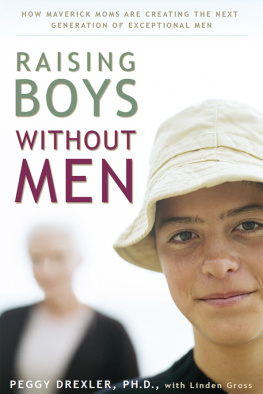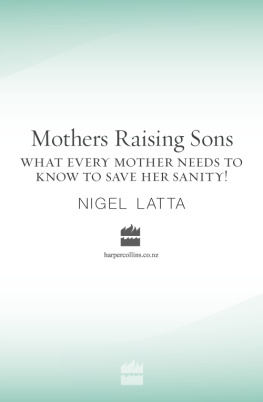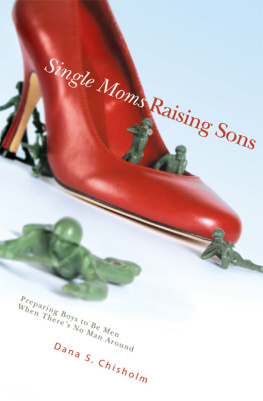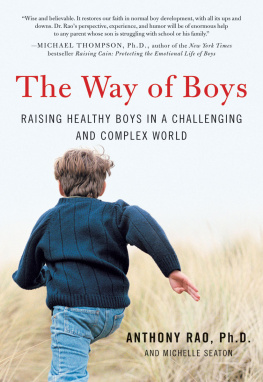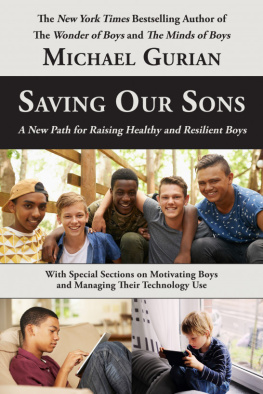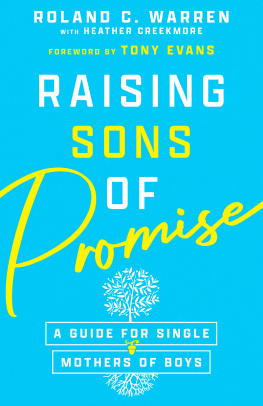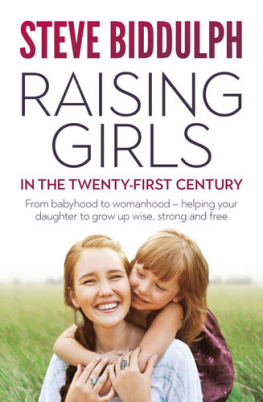

This book is for all the maverick mothers I have come to know and admire.
Notice
This book is intended as a reference volume only, not as a medical manual. The information given here is designed to help you make informed decisions about your childs development and behavior. It is not intended as a substitute for any treatment that may have been prescribed by your doctor. If you suspect that your child has a medical or developmental problem, we urge you to seek competent professional help. Mention of specific companies, organizations, or authorities in this book does not imply endorsement by the publisher, nor does mention of specific companies, organizations, or authorities imply that they endorse this book.
Internet addresses and telephone numbers given in this book were accurate at the time it went to press.
2005 by Peggy Drexler
All rights reserved. No part of this publication may be reproduced or transmitted in any form or by any means, electronic or mechanical, including photocopying, recording, or any other information storage and retrieval system, without the written permission of the publisher.
Book design by Christina Gaugler
Library of Congress Cataloging-in-Publication Data
Drexler, Peggy.
Raising boys without men : how maverick moms are creating the next generation of exceptional men / Peggy Drexler, with Linden Gross.
p. cm.
Includes bibliographical references and index.
ISBN-13 9781579548810 hardcover
ISBN-10 1579548814 hardcover
eISBN-9781623362379 ebook
1. Boys. 2. Masculinity. 3. Single mothers. 4. Parenting. I. Gross, Linden. II. Title.
HQ775.D74 2005
306.874320973dc22 | 2005010098 |

We inspire and enable people to improve their lives and the world around them
For more of our products visit rodalestore.com or call 800-848-4735
CONTENTS
ACKNOWLEDGMENTS
First and foremost, I owe a debt of gratitude to the families that participated in my research project. All the parents took time from their busy lives to meet with me or have lengthy phone conversations. Each family, parents and children alike, participated to the fullest, openly sharing their thoughts and feelings with me. I am thankful for their enthusiastic endorsement of this project.
Linden Gross, an extremely elegant wordsmith, helped to make this book what it is. Despite some trying times, Linden never wavered in her commitment to making this book the best it could be.
Gail Ross, my agent, was always there when I needed her. Gail is hands down the best!
I am privileged to have had Jane Isay, editor extraordinaire, on my team. Jane gave generously of her time, reviewing and shaping the book with her keen intellect and all the force of her critical and comprehensive knowledge.
Elizabeth Crane was immeasurably helpful in a multitude of ways.
Genevive Van de Merghels responsiveness, work ethic, and professionalism were invaluable in writing this book.
David Groffs lively intelligence stimulated many discussions that informed the book.
Steve Seligman graciously shared his creative mind with me and helped me to gain a fuller perspective of psychoanalytic theory, both traditional and contemporary.
William Damon permitted me to use his Social-Cognitive and Moral Judgment interview. That and his work with children have greatly enhanced my understanding of the nature of moral development in youngsters.
Many years ago Morris Peltz provided the creative spark for what ultimately is this book with his question, I wonder how these children are doing?
I had the good fortune to have had three editors at Rodale:
Mary South initially got it and bought the book.
Mariska Van Aalsts belief in the project and her expertise as an editor were invaluable in providing clarity to this project.
Amy Super added the important and necessary finishing touches to the book. I will never forget Amys actual words when she gave the book her seal of approval.
Alex, my beloved son, graciously allowed me to use his stories.
I am indebted to my wonderful daughter, Katherine, who kept me loving and laughing through the entire process of writing this book.
Mickeys (devoted husband, best friend, and dragon slayer) steadfast determination in the face of obstacles has been an inspiration to me.
INTRODUCTION
Whenever I pick up a new book in psychology, I want to know something about the author, so let me introduce myself. I come to the issue of how mothers are raising children with a strong interest, both professional and personal. I was raised in a homogeneous, suburban East Coast community in an era when the Father Knows Best ideal of family life prevailed. When I was 3, my own father died suddenly of a heart attack, leaving my mother a widow at age 33. So, like many of the children in this book, I was raised by a single mother. I had older sisters, which was like having three mothers. We were the only family in the neighborhood without a dad. This growing-up experience led to my lifelong curiosity about what it is like for children who, as I did, grow up without fathers in female-dominated households. I think that my interest in psychology and my determination to pursue a career that combines research with therapy also has deep roots in those years spent in a family that was then quite unusual.
I am also part of a long-married, heterosexual couple, but my family tree continues to sprout in ways that challenge tradition. My son, now 26, was conceived the usual way, but after waiting 14 years for another child, my husband and I adopted our daughter as a newborn. Im an older mother with a young child. Many of my contemporaries have children in high school or college, or who are out of the house or married. Some of my friends are even grandparents. Having an elementary-school-age adopted child along with an adult son has helped me to understand firsthand todays school-age children, as well as those girls and boys whose places on their family tree are untraditional.
Being married so long to the same man paradoxically makes me part of a new minority. The U.S. Census Bureau recently reported that only 23.5 percent of households in the United States now contain families like minethe Father Knows Best kind, the kind with a married mom and dad and their children. The definition of family that prevailed during most of my life and professional career is inexorably shifting because of new technologies for conceiving children and new configurations of familial relationships. Families are changing. Parenthood is changing. All you have to do is pick up the daily newspaper to see it. My version of family has even left our TV screens. Children NOW, a national child-advocacy organization that examines media messages to kids, reports that the nuclear family is disappearing from network television. On the six broadcast networks in 2001, only about 1 in 10 regular characters in prime-time series was a parent, and over one-third of those parents were single.
In a country in which one in two marriages will end in divorce, and 40 percent of babies are born out of wedlock, the mom-dad-and-kids version of family is now less than definitive. Moreover, ideas of how children are conceived and what kinds of relationships add up to a family are being redefined. More and more children in the Western world are being raised not in the traditional nuclear family but by single or divorced parents, stepparents in blended families, adoptive parents, and grandparents. An increasingly large number are being raised by mothers who are single and who have not divorced a husband or been abandoned by a man; these mothers are single by choice and have made a conscious decision to have a baby and find a sperm donor to do it. Lesbian couples and single mothers by choice are pioneering new ways of getting pregnant via donor insemination. In the midst of the social upheaval and debate that has taken place about family structure, I became fascinated with the question: Can parents in nonnuclear families, without both a mom and a dad in the household, successfully raise children?
Next page
